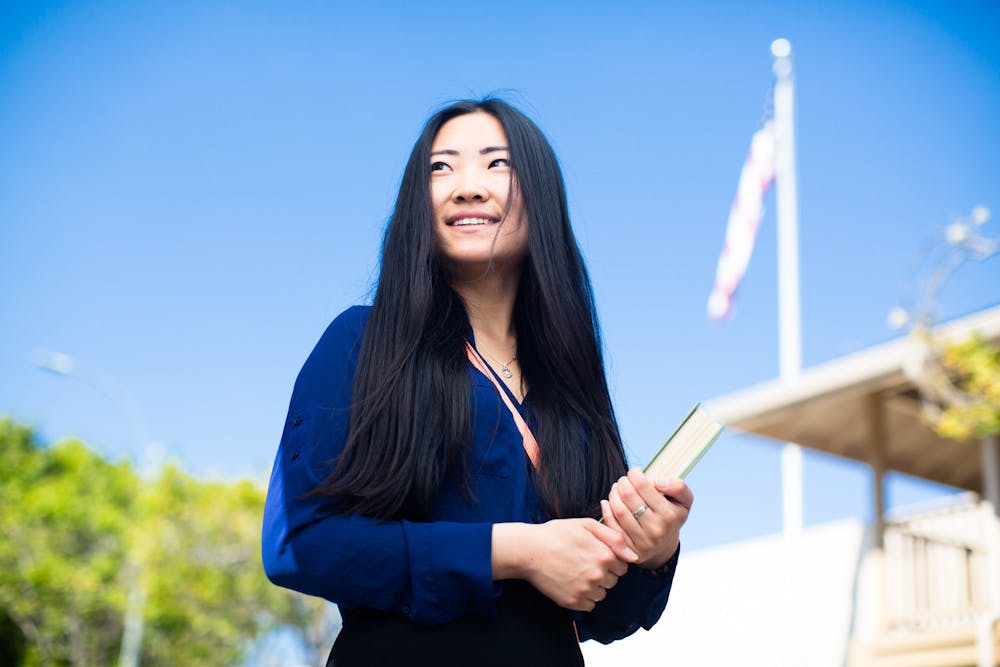The Middlebury Institute of International Studies at Monterey (MIIS) is partnering with the China Scholarship Council to launch a new scholarship program beginning in the fall of 2024, intended to host 20 Chinese students at MIIS on a yearlong full-ride scholarship.
In addition to covering tuition and travel costs, the program will provide a stipend to each student at MIIS. Through the program, enrolled Chinese graduate students can study in four fields: international policy and development, international trade, environmental policy and management, and non-proliferation and terrorism studies.
“Right now our program that has the most Chinese students in it are our translation and interpretation programs. And so we have great Chinese representation there, but we've had relatively fewer Chinese students across our other degree programs,” Jill Stoffers, senior director of institutional partnerships at MIIS, told The Campus. “The four programs that ultimately are part of this initial scholarship are ones that are really focused on diplomacy.”
The partnership was formed to diversify the Monterey student body and to make graduate studies more accessible to a wider pool of students, Stoffers explained.
The Institute’s student body is currently 40% international students, and 10% of international students pay full tuition, while the remaining 90% are on some type of scholarship, according to Stoffers.
“The Chinese Scholarship Council program is a remarkable opportunity for Chinese students to immerse themselves in an American institution of higher learning — rigorous subjects, American faculty and pedagogy, and, most importantly, learning in community with a highly diverse body of students in an American academy,” MIIS Professor Robert A. Rogowsky wrote in an email to The Campus.
The largest barrier to enrollment at MIIS is the cost of tuition — currently $46,556 for a full academic year — so the Institute is working to partner with governments and non-profit organizations that help ease the financial burden on students, according to Stoffers. The college recently noted in an update of its financial forecast an institutional deficit of $8.9 million, which it partially attributed to “soft graduate enrollments” at the Institute this year.
In 2021, when MIIS tuition was $42,634, Data USA found the Institute was charging about $19,450 more than the national average for master’s programs at both private and public schools.
The China Scholarship Council program is similar to the Institute’s partnerships with the Spanish Embassy to provide an exchange program for Spanish-speaking students through the North American Language and Culture Assistants Program, in which the Spanish government partners with Monterey to cover fifty percent of a student’s tuition costs.
Apart from the China Scholarship Council, MIIS has collaborated for over 30 years with the Peace Corps, the Organization of American States, the Inter-University Center For Japanese Language, and many more governments and international organizations, according to the MIIS website.
In addition to NGOs like the Peace Corps and Organization of American States, MIIS has a long history of partnering with other governments to host international students. In the past MIIS has worked with the governments of France, Germany and Kazakhstan, according to Stoffers.
MIIS receives funding from China’s Ministry of Education. In 2016, the Chinese Scholarship Council was founded as an initiative by the Chinese Ministry of Education designed to promote study abroad and international internships for Chinese students as a broader strategy to increase Chinese representation in the United Nations and other international organizations’ workforces, according to reporting from The Diplomat.
After studying at Monterey, students are expected to work for six months as an intern at an international NGO before returning to China, according to the Chinese Scholarship Council.
Through these four degree pathways, Chinese students can take courses on intelligence analysis, chemical and biological weapons control and terrorism in Southeast Asia, among other related areas of study. These departments also offer classes on the economics of international trade and the economics of environmental resources.
Apart from MIIS, the China Scholarship Council has programs in Madrid at Instituto de Empresa University centered around global governance and sustainable development, and a program at the United Nations University of Maastricht Institute of Economics and Social Innovation Technology in the Netherlands.
Stoffers looks forward to the increased accessibility of the program, and the diversity it will add.
“It’s going to make graduate school possible for students that might not have otherwise been possible because of cost. Any time we can help students overcome that hurdle is really fulfilling to me,” Stoffers said. “International students are such a vibrant and important part of our community, and having more international students is going to enrich the education for everybody in the classroom.”




